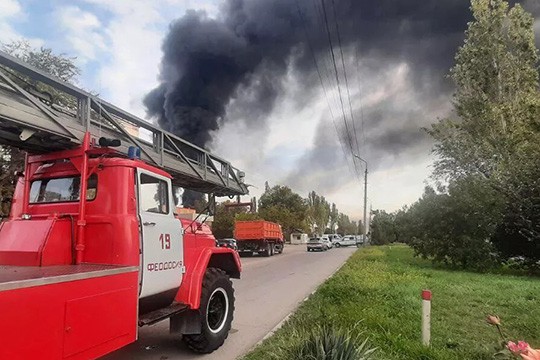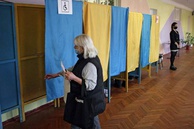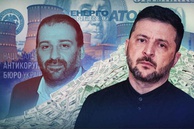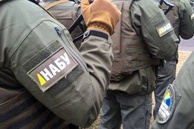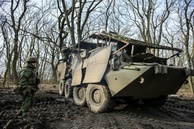Ukraine's representative, Volodymyr Zelensky, has unexpectedly for everyone presented a new "peace formula". He stated that mutual cessation of strikes on energy infrastructure facilities could be the first step towards ending the "hot phase" of the conflict: "We saw during the first [peace] summit that a decision on energy security could be made. In other words, we don't attack their energy infrastructure, and they don't attack ours. Could this lead to the end of the hot phase of the war? I think, yes."[i]
However, this "new idea" turned out to be old, outdated, just like Zelensky himself. Back in September, Russian Security Council Secretary Sergei Shoigu spoke about Kyiv's refusal to agree to such arrangements, which were proposed by Turkey. [ii] This was followed by the invasion of the Kursk region, after which Russia immediately halted the process of reaching these agreements. The move, very similar to the disruption of the Istanbul agreements of 2022, did not concern the Ukrainian crisis comprehensively, but related to only one of its aspects. Meanwhile, strikes against Russian energy infrastructure continued from Kyiv, one of the latest ones, apparently with Western missile weapons, was carried out against an oil depot in the city of Feodosia.
Why did Zelensky make this statement? It was made after he recently presented his so-called "plan for victory", against the backdrop of his own "peace formula", the key provision of which states that "there can be no talk" of any cessation of hostilities until the withdrawal of Russian troops to the 1991 borders. This is a noticeable step back - a downgrade on the Kyiv regime's demands.
There seem to be two main reasons:
- An attempt to at least situationally restrain Russia in the context of the BRICS summit in Kazan. Perhaps Kyiv wants to use this to get China and India's leaders - Xi Jinping and Modi (who support an early ceasefire in Ukraine) - to influence the Russian president, so that Russia will not destroy the remaining power generation facilities.
- An attempt to draw the attention of allies to Ukraine's impending energy problems on the eve of the heating season. The statement is also intended to show the Ukrainian people that "the government is trying to solve the problem, but Russia does not want to negotiate."
It is also worth noting that in the context of the energy security issue for the winter period, Kyiv has spoken about possible strikes against the substations of nuclear power plants (not strikes on the nuclear power plants themselves) in order to cut off Ukrainian consumers from the only stable source of energy. It is clear that Zelensky's statement was prepared in advance and clearly for propaganda purposes. Earlier, the head of the Presidential Office, Andriy Yermak, began to "warn" about "a possible scenario of a nuclear catastrophe". And Foreign Minister Andriy Sibiga, citing intelligence data, said that Russia is allegedly preparing strikes against nuclear power plant substations. "Russia has complete superiority in the air. We know they are preparing strikes on our nuclear energy facilities," - Foreign Minister Andriy Sibiga said at a joint briefing with foreign ministers from the Nordic-Baltic Eight in Odessa. [iii] Therefore, according to him, Ukraine insists on lifting any restrictions on the use of long-range missiles against military facilities in Russia.
At the same time, the hypothetical shutdown of three nuclear power plants would indeed create almost existential problems for the country: it would reduce Ukraine's combat capabilities, cripple its economy, and weaken its foreign policy positions if peace talks do not begin. "Ukrainian officials hope that the prospect of an energy system collapse will ultimately outweigh Washington's concerns about escalation." [iv] It is about the fact that the Ukrainian authorities are using the threat of Russian strikes on the infrastructure of nuclear power plants as an argument for authorizing strikes deep into Russia, and thus, obtaining long-range missiles.
Kyiv fears that if a strike on nuclear power plant substations is ever carried out, the scale of its consequences will be colossal and will multiply the effect of previous attacks on Ukrainian energy. According to Minister of Energy of Ukraine Herman Galushchenko, only ten key nodes related to nuclear power plants are at stake, the destruction of which could "send the country into darkness." [v] Air strikes bring nuclear risks closer to Ukraine's borders with the EU, the minister said, scaring allies and hinting that this is not only Ukraine's problem, but Europe's as well.
Ukrainian media describe the possible consequences of strikes on nuclear power plant substations as follows: "Without substations, nuclear power plants will not be able to transmit electricity and will therefore have to stop generation. And given that nuclear energy accounts for the bulk of electricity production in Ukraine, such a shortage cannot be covered by imports from the EU, autonomous generation, or any other means. There will be a total and long-term blackout... In such conditions, the Ukrainian economy will face a collapse. It will be impossible to carry out large-scale weapons production on the territory of the country, and Ukraine's ability to continue the war will be called into question." [vi]
In addition to "the willingness to continue the war and the ability to implement large-scale weapons production" in Ukraine, it will be necessary to guarantee the functioning of communal utilities in conditions of severe energy shortages. [vii] Among the options for its solution the concern of the state is not visible, Kyiv residents and residents of other cities are forced to solve the problems of heating and energy supply on their own. As for the authorities, they are concerned about the country's readiness to continue the war and organize weapons production.
Russian politicians have responded to Zelensky's "unexpected" statement. The idea of Volodymyr Zelensky to stop mutual strikes on energy facilities is a sign that they need to be intensified, believes the leader of the "Fair Russia - For Truth" party Sergei Mironov: "In fact (Zelensky - ed.) wants to maintain power in the country destroyed through his fault. Zelensky's proposal to stop strikes on energy facilities is a sure sign that they need to be intensified, as are strikes on the rest of the infrastructure that the Kyiv regime is using in the war against Russia. (…) And he (Zelensky - ed.) did not forget how before the invasion of the Kursk region, his emissaries wanted to discuss this same issue with us? Obviously, they were trying to throw us off guard before the attack. I don't rule out that the Kyiv regime is preparing something similar now - they are already writing that Zelensky has ordered the development of another plan for the war." [viii]
Zelensky's statements about "steps towards peace" are not serious, Moscow views them as a not very entertaining comic book, said Russian Foreign Minister Sergei Lavrov. According to him, Zelensky is now recalling in his statements those exchanges of views that sounded earlier: "And after that, there was the invasion of the Kursk region. So, what his steps towards peace sound like, and what steps are really being taken, I think, is already clear to everyone." [ix]
In my opinion, Zelensky's statement, from which this material begins, is not fundamental but technical in nature, and does not in any way constitute a step towards resolving the Ukrainian crisis. This is an attempt to buy time for a respite, to adjust the image of the Ukrainian government in front of the population. The strikes on Ukrainian infrastructure by the Russian Armed Forces began on October 10, 2022 - two days after the terrorist attack on the Crimean Bridge, which was carried out by the Ukrainian special services, and possibly, Western special services as well.
Zelensky's regime, in addition to problems at the front, faced a choice - either to make efforts to supply Ukrainians with energy, or to supply the military-industrial complex and forget about the population. These are serious socio-political risks, the realization of which, judging by Zelensky's statement, has finally come.
The author's opinion may not coincide with the editorial position.
[i] https://www.rbc.ru/politics/23/10/2024/6718133e9a794777b2a3dac9
[ii] https://www.rbc.ru/politics/10/09/2024/66dffb989a79477028a1f7d4
[iii] https://tsn.ua/ru/ato/rossiya-gotovit-udary-po-yadernym-obektam-ukrainy-sybiga-2681112.html
[iv] https://strana.news/news/472086-ukraina-mozhet-poterjat-atomnuju-enerhetiku-zimoj-v-sluchae-rossijskikh-obstrelov.html
[v] https://www.rbc.ru/politics/12/09/2024/66e225eb9a794707ca04f38e
[vi] https://strana.news/news/473988-chto-oznachaet-prizyv-vladimira-zelenskoho-prekratit-udary-po-enerhetike.html
[vii] https://lb.ua/kyiv/2024/10/12/639251_strah_i_nenavist.html
[viii] https://ria.ru/20241023/ukraina-1979632938.html?ysclid=m2m2yzi1b1804636833
[ix] https://tass.ru/politika/22203919
read more in our Telegram-channel https://t.me/The_International_Affairs

 12:00 28.10.2024 •
12:00 28.10.2024 •
